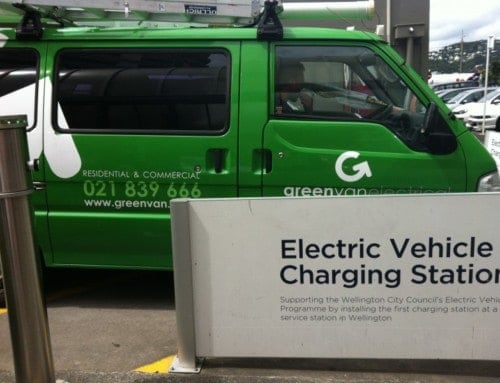The government’s proposal to introduce rental insulation standards is a step in the right direction. If, as predicted, about 180,000 rental dwellings (one third of rentals) will be upgraded to meet the standard over the next 4 years, this represents a greatly increased rate of insulation retrofitting compared with current rates.
Notwithstanding there are quibbles about the level of standards chosen: the government says ‘1978 standards’ but even that claim is a stretch, and the incentives to install insulation beyond the minimum standards appear weak. The proposed standards will at least force change on some landlords that have hitherto been unwilling to install basic insulation in their properties. But at best, it is a modest proposal.
The missing – By far the biggest concern is the treatment of the estimated 100,000 properties that will be exempt from the standards because retrofit insulation is impractical to fit. While exemption in such cases is justified, by doing nothing else these homes have essentially been abandoned into the ‘too hard’ basket. Compensating options that could provide more affordable warmth for such homes, namely efficient heat pumps and log burners, which can produce heat at one quarter to one-third the cost of electric resistance heaters or unflued gas heaters, have not been required despite being recommended by the Rental Housing Warrant of Fitness Technical Advisory Group.
Unquestionably, specifying particular forms of heating in a dwelling can be very tricky, especially in this segment of rentals which will include higher end apartments where heat pumps and log burners are not necessarily appropriate. The scope for unintended consequences abound. But rather than wave the policy white flag, surely this should have been reframed as a policy challenge to be progressed, if not solved? Some of our coldest, dampest rental homes will sit in this segment.
It is not just in houses without insulation where efficient, affordable-to-run heating is required. We have known for years that the temperature gain from just the standard package of retrofit insulation is quite modest. Insulation alone does not make a cold home warm. Yet the imperative to install affordable to run heating, especially for those with high needs but low incomes, continues to fall on deaf ears. Heating with electric resistance heaters is still regarded as acceptable in such cases – as shown by the evaluation of the Housing New Zealand warrant of fitness trial released at the same time as the rental standards were announced. But it was this kind of heating option that was offered, and proved unaffordable to run, in the South Auckland Housing New Zealand house implicated by Coroner Brandt Shortland in the death of toddler Emma-Lita Bourne.
The bigger problem – Despite years of insulating houses the evidence for the continued existence of cold, hard-to-heat houses remains stubbornly strong. The just released New Zealand General Social Survey found across the country 21% of households where the house or flat was ‘always or often’ colder than occupants would like it to be. For those in rental dwellings the rate was 35% compared with 15% for owner-occupiers. The same survey found nearly 12% of renters having a ‘major problem’ with dampness or mould compared with 3% for owner occupiers.
Yet the government’s Warm Up New Zealand (WUNZ) programme is winding down, with one-third less funding this year than last, and no commitments currently beyond 2016. The programme used to offer grants to install efficient heating appliances such as heat pumps and wood burners but these were discontinued in 2013. Only insulation grants continue to be available. And in some areas in the country even the insulation grants are unavailable because government rules requiring a local contribution to funding have made it difficult to operate a ‘universal’ scheme.
The overall policy on cold homes looks increasingly ad-hoc and lacking coherency – which pretty much sums up the proposed rental standards as well.
A new agenda for cold homes – Government policy on energy poverty and cold homes, including that applying to its own state house portfolio, needs a complete revamp. Here are five suggested priority actions:
- Re-set the policy ‘ambition’. The reality of energy poverty – the inability of householders to afford sufficient energy services in their home – needs to be acknowledged. Clear policy goals focused on achieving affordably heated houses and reducing energy poverty, are required.
- Start work now on designing and adequately resourcing a substantial retrofit and assistance programme to replace WUNZ in 2016. One idea is to focus the programme around the concept of affordable warmth These would establish annual energy costs that are affordable across the range of households. A number of flexible solutions could thus be envisaged depending on factors such as location, ability to retrofit insulation, and so on. In concept this is similar to the Building Performance Index target of the Building Code which allows a range of ‘acceptable solutions’.
- Involve local agencies/organisations as partners in this new approach. They are more in touch with local needs and priorities. Provide them with new ways of being funded (e.g. outcome, or bulk funding approaches) so they are better equipped to respond to such needs. The current centralised, prescriptive programme rules need to be replaced with more flexibility and greater local empowerment. The programme should also be funded in such a way that all areas of the country are included.
- Work to plug the gaps in rental minimum standards. Alongside this should be consideration of an associated energy rating scheme.

- Work with established local agencies to ensure that local response mechanisms are in place that can identify, and quickly respond to, emergency situations where cold homes and lack of heating are endangering health and well-being. This response might include short-term relief such as electricity vouchers, as well as more substantial house improvements such as heating, insulation and ventilation.
Ian McChesney
mcchesney@inet.net.nz
mobile: 027 412 8104
Ian McChesney is an independent consultant and advocate for addressing energy poverty. He co-founded Community Energy Action Charitable Trust in Christchurch in 1994, an organisation dedicated to providing warmer and healthier homes.He was a member of the Energy Cultures 1 Advisory Group from 2009-12.





Leave A Comment